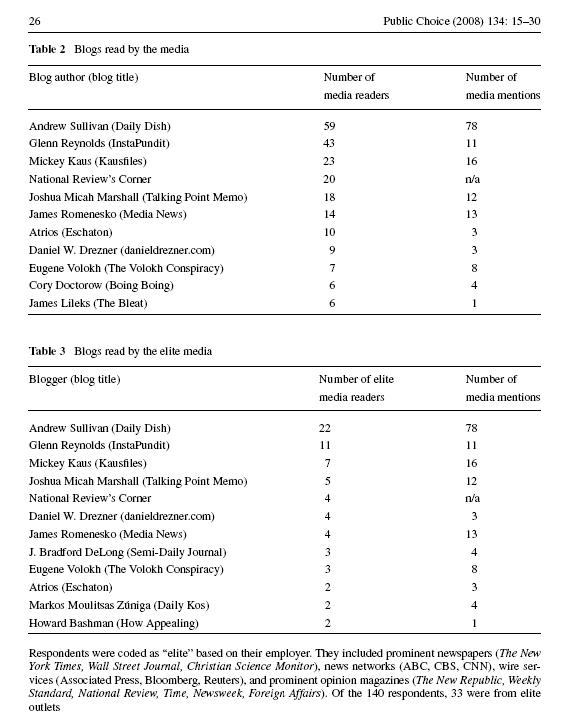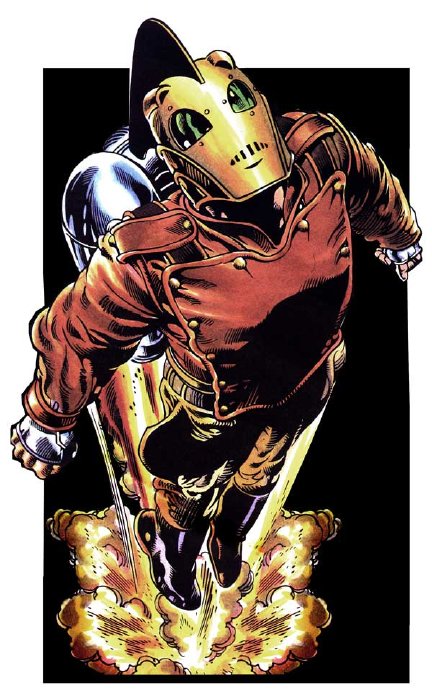
Here are the clowns they booked to help the party started: Paul Bremer, Richard Perle, Kenneth Pollack, Danielle Pletka, Frederick Kagan… Yes, these are all people who were either incredibly, stomach churningly wrong about the war, or people who actively helped bring it about. No, nobody from the anti-war side was invited for this. That would’ve drawn too much attention to what the NYT itself was up at the time; better to stay safe in the bubble of likeminded fools and pretend “nobody could’ve known” the claims about weapons of mass destruction were false.
Perhaps not unrelated: Henrry Farrell and Daniel Drezner’s study (PDF) on the power of blogs which reveals which bloggers the “elite media” (their term) were reading in late 2003, as shown in the chart above. Not the most inspiring of lists, with Atrois being the most outspoken anti-war blogger on it. The elite media was for the most part cheerleading the war and it seems their favourite blogs did the same. At the time it was not hard to find evidence that Bush and co were lying about the war, that it was an incredibly bad idea with horrific onsequences, but if you don’t go looking for it, you’ll never find it…
